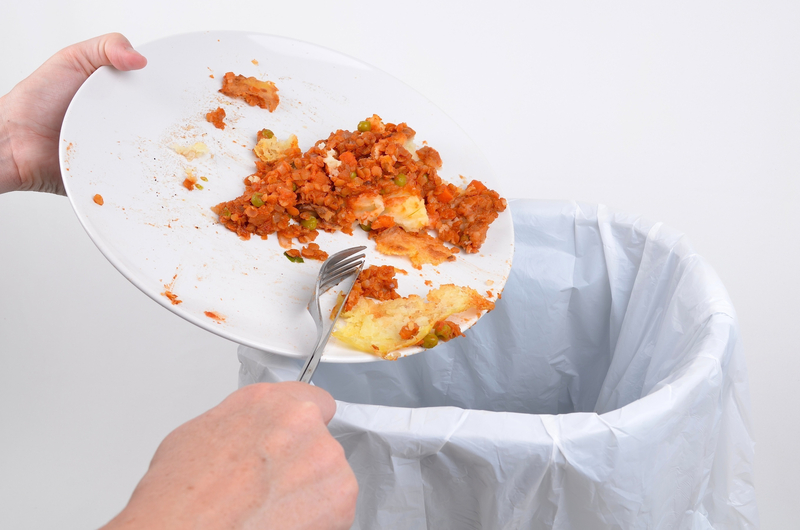Pros of Recycling Metal
Posted on 04/04/2025
Recycling metal has become a crucial aspect of modern waste management and environmental conservation. As society strives to reduce its carbon footprint and lessen the strain on natural resources, metal recycling offers various advantages that make it an essential practice. This article explores the numerous benefits of recycling metal, ranging from environmental improvements to economic gains and beyond.
Environmental Benefits
One of the most significant advantages of recycling metal is its positive impact on the environment. The production of new metal from raw ore is an energy-intensive process that leads to substantial greenhouse gas emissions. When metals are recycled, the energy required for production is significantly reduced. This energy efficiency translates into lower emissions of carbon dioxide and other harmful gases that contribute to climate change.
Moreover, recycling metal reduces the need for mining. Mining not only depletes natural resources but also has severe environmental consequences, including habitat destruction, soil erosion, and water pollution. By recycling existing metal, these adverse effects are diminished, ensuring the conservation of natural landscapes and ecosystems.
When metals are recycled, less waste ends up in landfills. Landfills are a growing concern worldwide as they take up valuable land and contribute to pollution through leachate, which can contaminate groundwater. By diverting metal waste from landfills through recycling, we mitigate these environmental hazards.

Economic Advantages
Recycling metal offers significant economic benefits. Firstly, it creates jobs in the recycling industry, which includes collection, processing, and distribution sectors. These jobs contribute to local economies and provide employment opportunities in both urban and rural areas.
The recycling process is also cost-effective. Producing metal from recycled materials is usually cheaper than manufacturing new metal from raw ore due to the lower energy requirements. Companies that engage in metal recycling can thus reduce their production costs, allowing for more competitive pricing in the market.
Additionally, metal recycling helps conserve resources that would otherwise be spent on mining and processing raw materials. This conservation leads to savings that can be redirected to other essential sectors of the economy, fostering overall economic growth and sustainability.
Energy Conservation
One of the overlooked benefits of recycling metal is the energy conservation it promotes. The energy required to extract, transport, and process raw metal ore is substantially higher than the energy needed to recycle used metals. For instance, recycling aluminum saves about 95% of the energy required to produce the same amount of aluminum from bauxite ore.
This considerable energy savings not only reduces operational costs but also lessens the strain on our energy resources. Given the increasing global energy demand, conserving energy through practices like metal recycling is vital for achieving long-term sustainability.
Resource Conservation
Recycling metal helps conserve valuable natural resources. Metals such as iron, copper, aluminum, and steel are non-renewable resources that can be reused multiple times without degradation in quality. By recycling these materials, we are able to preserve the finite reserves of raw ore for future generations.
Furthermore, the recycling of metals prevents the overexploitation of the earth's crust, maintaining ecological balance. By relying less on new mining activities, we also support efforts to conserve biodiversity and protect habitats of various plant and animal species.
Reduced Pollution
The process of metal extraction and refinement often involves chemical usage and generates a significant amount of waste. These processes can lead to air, water, and soil pollution. For example, smelting operations release sulfur dioxide, a major air pollutant, into the atmosphere.
Recycling metal reduces the need for these polluting activities. By utilizing existing metals, we cut down on the industrial processes that produce environmental contaminants. This reduction in pollution not only improves air and water quality but also promotes healthier living conditions for communities located near industrial areas.
Innovation and Technological Advancement
The metal recycling industry has spurred innovation and technological advancement. The need for efficient and effective recycling processes has led to the development of advanced sorting, shredding, and melting technologies. These innovations not only improve the quality of recycled metal but also enhance the overall efficiency of the recycling process.
Additionally, technological progress in metal recycling has applications beyond the industry itself. Techniques developed for recycling can be adapted for use in other types of materials, like plastics and electronic waste, promoting a more circular economy and encouraging further research and development in sustainable practices.

Social Responsibility and Corporate Image
Companies that prioritize metal recycling often experience a boost in their public image and brand value. As consumers become more environmentally conscious, they are more likely to support businesses that demonstrate social responsibility. Organizations that actively engage in recycling and promote sustainable practices often enjoy a loyal customer base.
Beyond consumer perception, companies that recycle metal also contribute to the well-being of their communities. By reducing waste and environmental impact, they support public health and the long-term sustainability of the regions in which they operate. This social responsibility fosters trust and cooperation between businesses and their local communities.
Conclusion
Recycling metal offers a multitude of benefits that touch on environmental conservation, economic efficiency, energy savings, resource preservation, and technological innovation. By embracing metal recycling, individuals, companies, and governments can work together to create a more sustainable and prosperous future. The collective effort to recycle metals not only helps reduce the strain on our planet but also fosters a more responsible and economically viable society.



